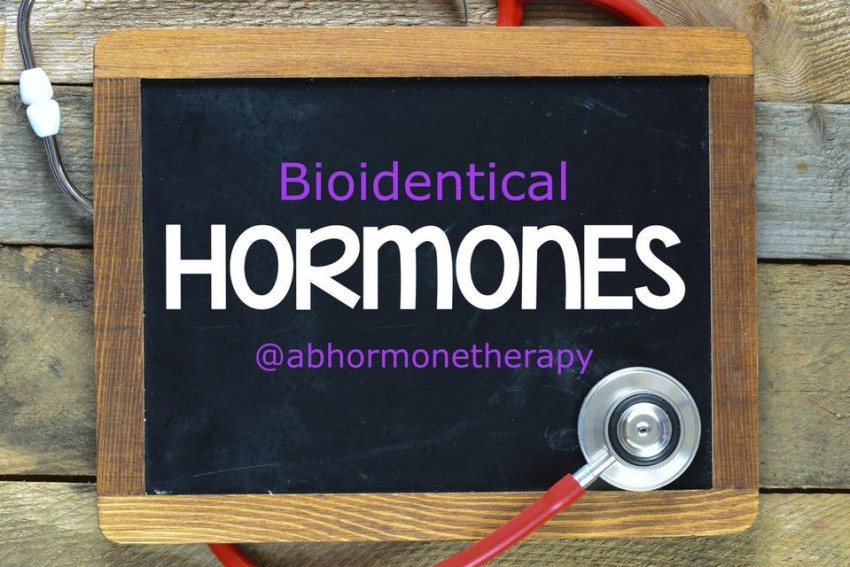
Is Bioidentical Hormone Replacement Therapy Right for You? Find Out Now

Introduction: As women navigate the complex terrain of menopause, seeking relief from its myriad symptoms becomes a top priority. Bioidentical Hormone Replacement Therapy (BHRT) has emerged as an increasingly popular option, promising a more natural approach to managing menopausal symptoms. In this article, we delve into the world of BHRT, helping you determine whether this therapy aligns with your needs and health goals.
Understanding Bioidentical Hormones:
Bioidentical hormones are compounds that are structurally identical to the hormones naturally produced in the body. Derived from plant sources, such as soy or yams, these hormones are customized to match an individual's hormonal needs. This stands in contrast to synthetic hormones, which are not identical to those produced by the body.
Is BHRT Right for You? Consider the Following:
-
Individualized Approach: One of the primary draws of BHRT is its personalized nature. Hormone levels vary widely among women, and BHRT aims to address this diversity by tailoring treatment plans to each individual's specific needs. If you're seeking a more personalized approach to hormone therapy, BHRT might be a suitable option.
-
Symptom Severity: The severity of your menopausal symptoms can play a role in determining whether BHRT is a good fit. If you're experiencing intense hot flashes, night sweats, mood swings, and vaginal discomfort, BHRT might offer the relief you're looking for.
-
Health History: Your medical history is a crucial factor in determining whether BHRT is appropriate. If you have a history of hormone-related conditions, such as breast cancer or blood clotting disorders, discussing your options with a healthcare provider is essential.
-
Prefer Natural Approaches: If you prefer a treatment option that aligns with your belief in more natural therapies, BHRT could be appealing. Since bioidentical hormones are derived from plant sources and are structurally similar to the hormones your body produces, they are often considered a more natural alternative to synthetic hormones.
-
Consultation with a Healthcare Provider: Deciding whether BHRT is right for you should involve a thorough consultation with a qualified healthcare provider. They can assess your individual health profile, discuss your goals, and guide you toward the most suitable treatment approach.
Benefits of BHRT:
-
Symptom Relief: BHRT is designed to target a range of menopausal symptoms, including hot flashes, night sweats, mood changes, and sleep disturbances. Many women report significant relief from these discomforts through BHRT.
-
Customization: Unlike standardized hormone therapies, BHRT is customized based on individual hormone levels and needs. This tailored approach can lead to more effective symptom management.
-
Potential Bone Health Support: Some studies suggest that BHRT might contribute to better bone health by mitigating the bone density loss that often accompanies menopause.
-
Vaginal Health Improvement: BHRT can aid in restoring vaginal health by addressing symptoms of dryness, discomfort, and painful intercourse.
Considerations and Caution:
-
Lack of Regulation: One of the challenges of BHRT is the lack of standardization and regulation. Not all BHRT products are approved by regulatory bodies, making it essential to consult with a qualified healthcare provider who specializes in hormone therapy.
-
Monitoring: Regular monitoring of hormone levels is crucial with BHRT. Adjustments to the treatment plan might be necessary to ensure optimal symptom relief without adverse effects.
-
Risk Factors: While BHRT is often touted as a natural alternative, it's not without risks. Women with certain medical conditions or risk factors might need to explore other options.
Conclusion:
Bioidentical Hormone Therapy offers a personalized and potentially more natural approach to managing menopausal symptoms. However, determining its suitability requires a thorough understanding of your health history, symptoms, and goals. Consulting with a knowledgeable healthcare provider is paramount in making an informed decision. Remember that every woman's journey through menopause is unique, and what works best for one might not work the same for another. Ultimately, whether BHRT is right for you depends on a careful assessment of your individual circumstances and priorities.
